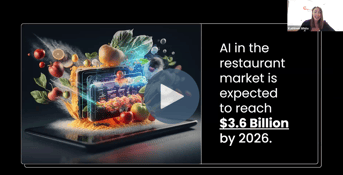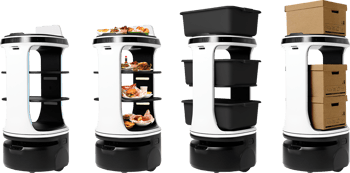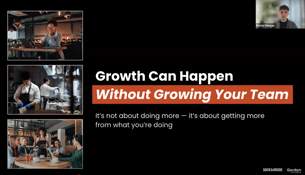
Featured
How to Train Staff in Food Safety Without Taking Hours Away from Service
Make restaurant food safety training top priority. Learn about practices and tech solutions that can support it without disrupting operation.

by Dave Tomar
Make restaurant food safety training top priority. Learn about practices and tech solutions that can support it without disrupting operation.
Select a Vendor Category
All Categories 7shifts 86 Repairs AI Tools Advertising App8 Bear Robotics Bikky Cartwheel Catering Checklist ChowNow Compliance Consultations Customer Experience Data Analytics Dyne Email & SMS Employee Satisfaction Equipment Repairs Fast Casual Flapjack FlavorPlate Food Inventory Management Food Safety & Training Food Trucks Ghost Kitchens GoTab Growth & Marketing Guide HR & Staffing HigherMe Homebase How-To INFI Interviews & Case Studies Jolt Libro Lightspeed Localyser Loyalist Loyalty Programs MarginEdge MarketMan Marketing Meez Menu Design Menufy MiseBox Missive Neighbourhood Networks Olo Operations Opsi Opus Ordering & Delivery Otter Owner POS Systems Payment Processing Payroll Poached PreciTaste Profitability & Cost Control Push QSR Recruiting & Hiring Reputation Management RestauRent Restaurant Software Restaurant365 Robotics Sauce Scheduling Science on Call Social Media Social Pilot Sociavore SpotOn Sprout Social Square Staff Retention Staffing Sustainability Symply Tech Stack Technology & Innovation Third-Party Delivery Toast Tools & Templates TraitSet Trends & Innovation Trust20 Upcoming Trends Website Website Builders WedgeHR Wix Work-Life Balance Yelli
Mastering High-Volume Periods with Restaurant Inventory Management
by Jocelyn Hoppa
Streamline staffing, inventory, and operations with restaurant inventory planning software for smoother, more profitable high-volume periods.

Use Customer Data to Create Smart, Personalized Restaurant Promotions
by David Wisdom
Understanding your customers improves your bottom line. Learn how to collect restaurant customer data and what to do with it to boost your revenue.

5 Surprising Ways Email Is Crushing Your Business Operations
by Dave Tomar
Restaurant management communication tools can help you solve common email communication problems in restaurants like wasted time and lack of cooperation.

How HR Compliance Software Keeps Your Restaurant Compliant
by Jocelyn Hoppa
Discover how restaurants can stay compliant with labor laws using tech, HR compliance software, and smart strategies to reduce risk and save time.

Optimize Private Event Marketing to Supercharge Your Restaurant Business
by Jocelyn Hoppa
Boost restaurant revenue with smart private dining promotion. Learn strategies to increase bookings, maximize ROI, and turn guests into event ambassadors.

What the BOH Team Thinks About … Trendy Food Terms
by Dave Tomar
Your menu is one of your most important ways to attract customers — or turning them off. Hear what a few diners on the street think about trendy food terms.

How to Train Staff in Food Safety Without Taking Hours Away from Service
by Dave Tomar
Make restaurant food safety training top priority. Learn about practices and tech solutions that can support it without disrupting operation.

Using Restaurant AI Technology To Improve Business Operations
by Dave Tomar
Learn about AI tools for restaurant management, including some you may already have. They can help with operations, staffing, and customer experience.

Restaurant Holiday Preparation: Lessons from the Busiest Season of the Year
by Spencer Michiel
Get expert advice on restaurant holiday preparation. Learn how to do holiday planning for restaurants, from staffing to marketing, for a smooth, profitable season.

How Can Robotics Help Your Restaurant’s Front Of House Operations?
by Dave Tomar
More and more restaurants are using robotics to help in the front of house. Are robots right for your restaurant?

Surviving Tough Times by Providing a Great Customer Experience
by Dave Tomar
Restaurants are dealing with high food and labor costs. We bring experts together to discuss the importance of customer experience in staying profitable.

Win Your Customers Back With a First-Party Delivery Solution
by Jocelyn Hoppa
Learn how restaurants can cut delivery fees, reclaim customers, and boost loyalty by shifting from third-party delivery apps to first-party ordering.
